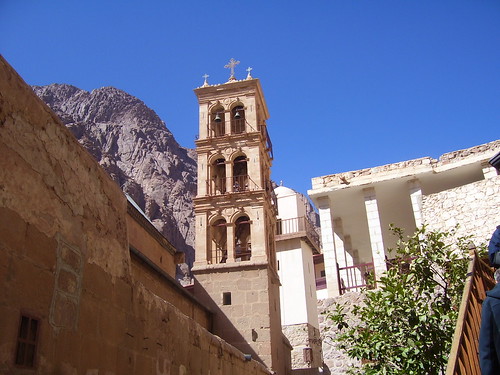Friday, April 24, 2009
On money, or taking things for granted
We’ve learned quickly that if a driver tries to negotiate a price with us when we get into the car, he’s attempting to overcharge us. We generally become furious that our status as Westerners invites this behavior. “Ana mish chawaga!” Jess often yells as we scramble to get out of the car. “I am not a stupid tourist!”
Because we use taxicabs almost daily, it’s from their backseats that we most frequently encounter the Cairene proclivity for swindling foreigners. However, almost all our monetary exchanges are tinged by the feeling that we’re being taken advantage of.
And it isn’t just paranoia. Caitlin, Jess and I have become friendly with an Indian family who lives on the same floor of our building. During an elevator ride recently, the father asked us how much we’re paying for our place. We told him, and his eyes widened in incredulity. They’re paying much less.
Between these everyday frustrations and our eviction from the apartment, I have become distrustful and often angry when spending any money in Cairo. It's exhausting.
But I had a reality check the other night.
I left Cilantro, a local café, around one o’clock, eager to get home. As I stepped out onto the sidewalk, I saw a little boy of about five sitting on the curb. His chin resting in his palm, he looked up and quickly rose to approach me. I didn’t know if he was homeless and alone or if an adult had left him there to beg. Not wishing to be party to the latter possibility, I took him into the nearby Pizza Hut for a slice and a juice.
I don’t mean to sound melodramatic, but I cried a little as I walked home. I was suddenly ashamed for all my complaints and frustrations. Every day, millions of Cairenes have to fight extreme poverty, navigate a venal bureaucracy and fear imprisonment and even torture if they question an official or voice opposition to the government. Rampant corruption and nepotism at the top have created outrageous wealth disparity. An here I am, clutching my daddy’s credit card and whining about a few dollars lost here and there and a few inconveniences.
Friday, April 10, 2009
Who here knows what a piranha is?
Thursday, April 2, 2009
Oppressed peoples... and extraterrestrials
Wednesday, April 1, 2009
Look!
Friday, March 27, 2009
A Model Citizen
Brief update
Sunday, March 15, 2009
The Difference is in the Details
When they caught sight of me, they began laughing and pointing.
"Sabah al-kheir, gamal!" or "Good morning, camel!" they shouted. I realized that they were mocking me for my overstuffed backpack that was causing me to bend forward slightly and must indeed have looked like a hump.

Egyptians don't wear backpacks to school, but carry their books under one arm. Older girls and women usually put them in their purses. I felt more embarrassed than I probably should have, but it is these small cultural differences that can make one stand out as a foreigner and make one horribly self-conscious.
Wednesday, March 11, 2009
EVICTION NOTICE
Saturday, February 28, 2009
To the Holy Mountain


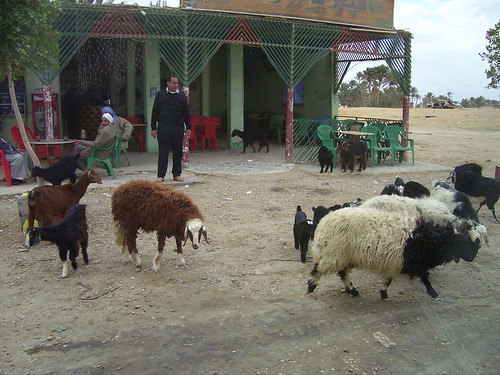
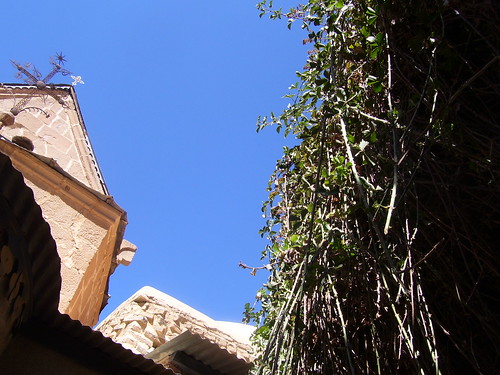
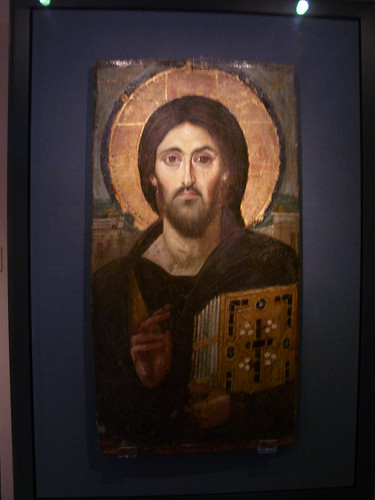
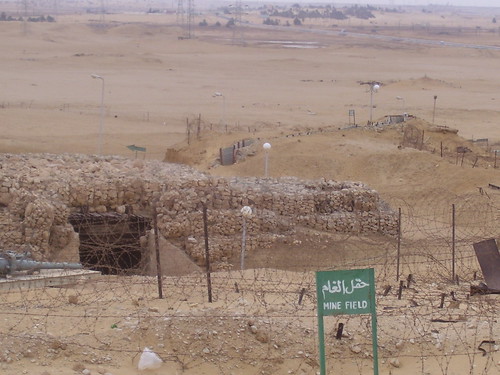
Wednesday, February 25, 2009
Revenge is cheap

Tuesday, February 17, 2009
Mummified Molars

Saturday, February 14, 2009
Merchandise Update
Friday, February 13, 2009
The Cave of Wonders
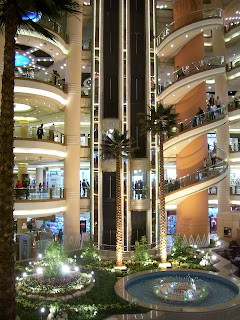

Tuesday, February 10, 2009
Protests for a Protester
A recent protest in Cairo, meant to raise awareness for the situation in Gaza, ended in the arrest of a German-Egyptian AUC student, Philip Rizk, by the Egyptian authorities. The latter seem to be reacting to increased pressure from internal critics of Egypt's Gaza policy. Among other things, vocal Egyptians are protesting the closing of the Rafah border, the only border between the Palestinian territories and a country other than Israel, which is therefore Gaza's only land passageway to outside aid.
AUC students have started a campaign demanding Philip's release from an undisclosed location. "Where is Philip Rizk?" signs read, displaying their authors' incisiveness. The New York Times published a short piece on the arrest yesterday.
My friend Kerry can be seen in a bright green "Guiness" shirt in the background. I'm not sure if he actually attended the protest and was looking intentionally grim, or if he just happened to be standing nearby and was quietly expressing his bewilderment over the goings on. (Just to clarify, the picture posted above was taken from the NYTimes piece. And for future reference, any good pictures posted here will in all likelihood not have been taken by myself.)
Monday, February 9, 2009
Roadside Bizarre
Saturday, February 7, 2009
I have class.
-Intro to Colloquial Arabic
-Art and Architecture of Cairo (we go on a lot of field trips to Islamic monuments and buildings)
-Modern Movements in Islam (turns out you need a solid background in Islamic history and theology for this class, neither of which I possess)
-Israeli Politics and Society (taught by an Egyptian professor...)
-Mediterranean Legends (includes Greek, Mesopotamian, Ancient Egyptian and Roman mythology)
Since my commute is 2-3 hours a day, I worked very hard to have only four days of class a week, which limited my options, but so far I'm quite pleased with my schedule.
Thursday, February 5, 2009
Hello, my name is...
Sunday, February 1, 2009
Bartering School Part I
Monday, January 26, 2009
To get to the other side
At first, my fellow lodgers at the hostel and I would run two meters, shrieking at the top of our lungs, stopping briefly in front of an oncoming car, panic-stricken, and would then continue on in a fit of hysterical giggles. We've gotten better, but not by much.
The daytime host at the King Tut has made several illuminating remarks about traffic accidents in Cairo over the last few days. In chronological order:
1. "People get hit all the time."
2. "Just cross, the cars will always stop for you."
3. When I suggested, "I guess you just have to look non-chalant and self-assured," he shook his head. "The cars never stop."
I give you this as an example of the inconsistency in Egyptian stories. Information changes all the time.

